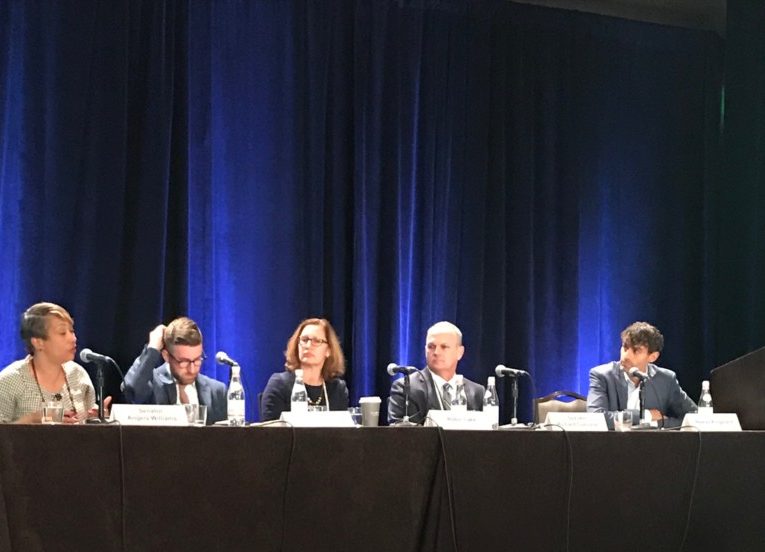
With “Schools of Hope,” Florida is providing funding, facilities and regulatory freedom to roll out the welcome mat for high-caliber charter organizations that have often shied away from its big cities.
On Thursday, at the Foundation for Excellence in Education’s national gathering in Nashville, state House Speaker Richard Corcoran joined a panel of charter school experts and Sen. Angela Williams to discuss the Hope law — one of his signature education initiatives. They talked about the program’s potential, and also raised cautions.
The new law is intended to draw proven charter schools into academically struggling areas. The state Department of Education is still developing rules to carry out the program.
Recruiting the top charter school organizations from around the country is part of a broader strategy to transform the state’s 115 schools that have languished for four or more years with the lowest possible ratings on the state’s A-F system.
But in the same measure, Robin Lake, the director of the Center on Reinventing Public Education, said after the panel that there are some caveats to keep in mind.
“You have to eliminate barriers for schools to operate,” she said. “That by itself doesn’t guarantee it will perform with quality and equity.”
Lake added during the panel discussion that it is important to look at the politics of the situation.
“There is a lot of that at both the national level and state level, especially around districts struggling with the reality of losing enrollment and the financial pressure of that,” she said.
Michael McShane, director of national research for Edchoice, said he is optimistic about programs such as Schools of Hope. He added communities need to have input on schools that will open in their midst.
“It is important to think about cultivating home-grown charter schools,” he said. “What are the pipeline issues that reflect the communities? Those should not be lost in the process.”
Corcoran said it is important charter schools that open are not simply cookie-cutter replicas of schools nearby. They should be innovative. And they should go where the needs are greatest.
“For our movement, we need to be careful and continue to go out there and innovate and have the success … rather than go out there and there is money to be made opening up in this nice neighborhood,” he said.
After the panel discussion, Corcoran said he was optimistic that the rules around Hope Operators and grant distribution can come together fast enough for top charter organizations to open in Florida in the next few years. He added the chairmen of the House Education and Education Appropriations committees are helping with recruitment.
“We keep in good contact with the Department of Education and they are on a good pace,” he said. “We are all confident about it and [Reps.] Mike Bileca [R-Miami] and Manny Diaz [R-Hialeah] have been traveling around talking to these potential operators. We are hopeful that, now that we have given them the things they asked for — the deregulation and the money — that they will come.”


